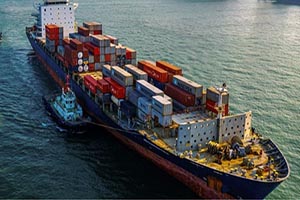
Pakistan’s First Containerized Shipping Service
Pakistan’s first containerized flag carrier shipping service has been launched for trade with Gulf countries, heading a step forward in the maritime trade sector of the country and market access in respective countries. The inauguration ceremony held at Karachi Gateway Terminal Limited and was attended by NLC officials, representatives from shipping industry, and members of the business community. Two cargo vessels, in the beginning of the service with a capacity of 1,120 TEUs each, operating on a 10-day round-trip schedule to ensure uninterrupted cargo movement. This service together with the government’s policy to strengthen trade ties with Gulf nations, enhanced regional trade offering businesses in Pakistan and support to Pakistani exporters and importers by providing a direct shipping route between Karachi, Dammam (Saudi Arabia) and Jebel Ali (Dubai).
|
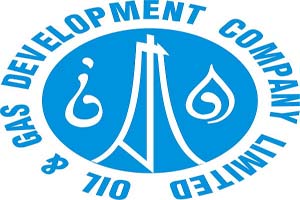
Pakistan Minerals Investment Forum 2025
An international conference scheduled for April 8-9 at the Convention Center in Islamabad and through the Pakistan Minerals Investment Forum (PMIF) 2025, Pakistan is set to tap into vast mineral wealth. Organized by Oil & Gas Development Company Limited (OGDCL), the high-profile summit will feature top officials from both national and international companies. Several MoUs are anticipated to be signed with local and international firms, unlocking Pakistan’s mineral potential. The mineral sector of Pakistan contributes only 3.2% to the GDP, with mineral exports accounting for just 0.1% of global exports. Pakistan is home to rich mineral reserves along with 92 identified minerals, of which 52 are commercially exploited mineral reserves of Pakistan include the world’s second-largest salt mines and the fifth-largest gold and copper deposits, along with substantial coal, bauxite, gypsum, and gemstone deposits. With enhanced exploration, foreign investment, and infrastructure development, the sector has growth and expansion.
|
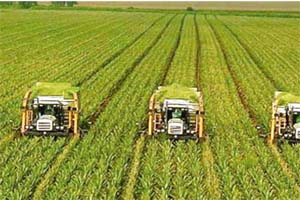
Pakistan Halts Methyl Bromide Fumigation for Rice Exports
Government of Pakistan has immediately stopped the use of methyl bromide for fumigating rice consignments, permitting importing countries to conduct fumigation in accordance with their own standards. Eliminating fumigation make Pakistani rice more affordable internationally and Pakistan’s global reputation to progress as a reliable rice exporter. Methyl bromide regarded as a major ozone-depleting substance, is a broad-spectrum fumigant used for soil-borne pests and post-harvest treatments and is prompting its phase-out in some countries.
|
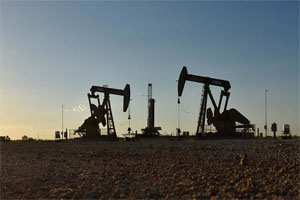
OGDCL Revives Rajian-11 Well
Rajian Oil Field, is fully owned and operated by OGDCL under Gujar Khan E.L. Discovered in August 1994, located in District Chakwal, the field has remained as an asset in the company’s portfolio. Successful production revival at a heavy oil well Rajian-11, through the installation of an Electrical Submersible Pump (ESP) by Oil & Gas Development Company Limited (OGDCL) underscores OGDCL’s commitment to make the most of hydrocarbon exploration and operational efficiency, strengthening its position in Pakistan’s energy sector. Rajian-11 had remained suspended due to formation challenges since 2020. Extending to 3,774 meters, the company successfully completed the well with an ESP in Tobra, Jutana, and Sakesar formations, restoring production to 1,000 barrels per day (BPD) of oil.
|
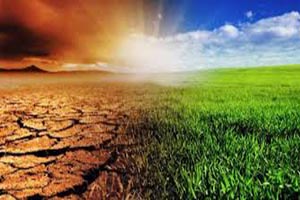
$348 Billion To Tackle Escalating Climate Crisis By 2030
Pakistan, in terms of climate vulnerability ranked 5th globally with 90% of its population exposed to climate hazards and faces unparalleled risks. The inefficient government policies and factors such as limited capacities in both public and private sector and high investment risks hindering Pakistan’s climate financing efforts. Pakistan is facing climate financing shortfall and this serve as a threat to the long-term sustainability and nation’s economic stability. Climate financing requires $348 billion between 2023 and 2030 to address the escalating climate crisis of Pakistan to mitigate climate risks and exploring diverse climate financing sources, such as multilateral funds (e.g., the Green Climate Fund and the Global Environment Facility), bilateral funding, and private sector contributions to bolster Pakistan’s climate response bolster resilience. Substantial financial resources align with comprehensive planning for development, improved policies, and capacity building to bridge the climate financing gap and ensure a sustainable future for Pakistan.
|
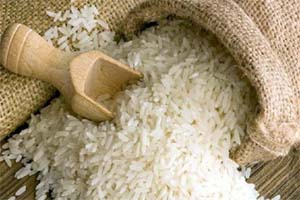
Kenya Cuts Customs Valuation of Pakistani Rice
Pakistan is an important supplier of non-Basmati rice to Kenya and to boost Pakistan’s rice exports to the East African nation Kenya has lowered the customs valuation. Aligning the valuation with current global market rates Kenya has lowered the customs valuation by 25% of the official price of per metric ton of Pakistani rice. Emphasizing its potential to enhance Pakistan’s market share in Kenya, the pricing adjustment would benefit both countries by increasing trade volumes.
|
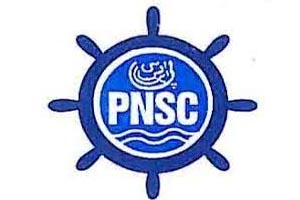
PNSC Sold Two Aframax Oil Vessels
The Pakistan National Shipping Corporation (PNSC) has completed the sale of two aging vessels after they reached the end of their 20-year operational lifespan. Vessels were owned by PNSC’s subsidiaries, Quetta Shipping Private Limited and Lahore Shipping Private Limited. Corporation plans to acquire new ships to replace those sold of two aging vessels MT Lahore and MT Quetta. The sale aligns with international maritime regulations that restrict older vessels from accessing multiple ports and oil terminal.
|
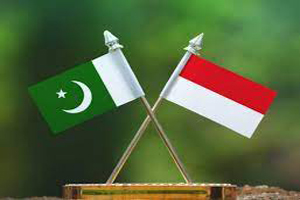
Pakistan, Indonesia Set to Sign 10 MoUs
Pakistan and Indonesia are expected to sign over 10 MoUs related to education, healthcare, IT, tourism, energy, (EV) industry, food security, and military relations. Pakistan is looking to enhance diverse sectors of the economy , trade in processed food, pharmaceuticals, IT services, halal meat, including textile, Islamic fashion products, Islamic tourism, Islamic banking, startups, metal & mining, education, biodiesel, renewables, small and medium-sized enterprises (SMEs), digitalization, e-commerce, engineering and biotech and palm oil production and processed palm-based products, while Indonesia sees opportunities in consumer electronics, auto parts, and processed palm-based products.
|
|
© 2025 Alpine Marine Services Private Limited
all rights reserved
|
|
|